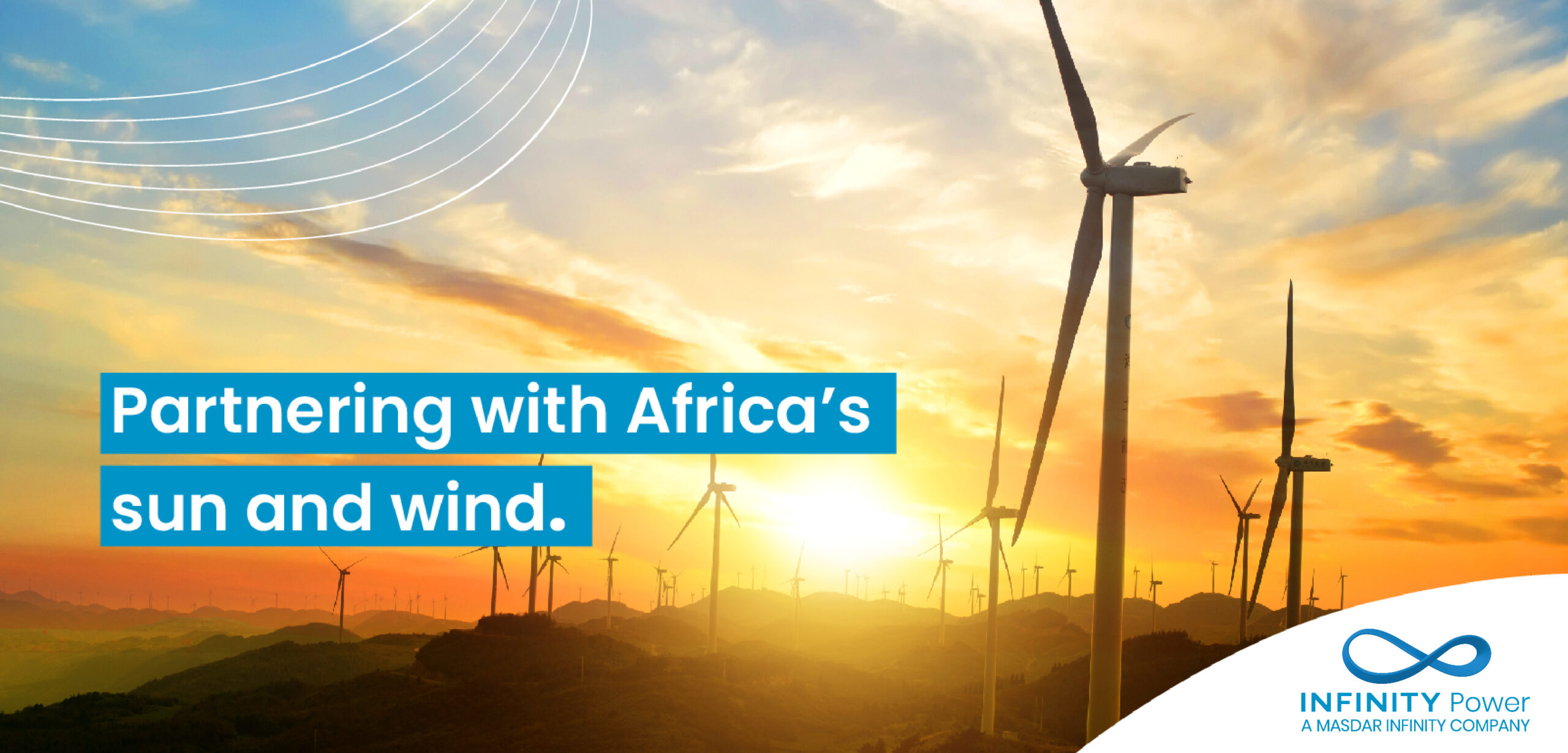- Egypt inks two agreements for green hydrogen and renewables-powered potassium chloride production in the SCZone. (Green Hydrogen)
- EU decides to push for phase-out of “unabated” fossil fuels at COP28. (What We’re Tracking Today)
- Climate tech funding experiences a slump in 3Q 2023 y-o-y. (What We’re Tracking Today)
- Germany once again shoots down a proposal to include nuclear in the bloc’s renewable energy targets. (What We’re Tracking Today)
- EU backs tougher emission restrictions for heavy cars in decarbonization push. (Around the World)
- MENA is jumping on the food waste to energy train, but there’s still much potential to be capitalized on. (Waste-to-Energy)

Wednesday, 18 October 2023
Egypt inks two agreements for green hydrogen and renewables-powered potassium chloride production in the SCZone
TL;DR
WHAT WE’RE TRACKING TODAY
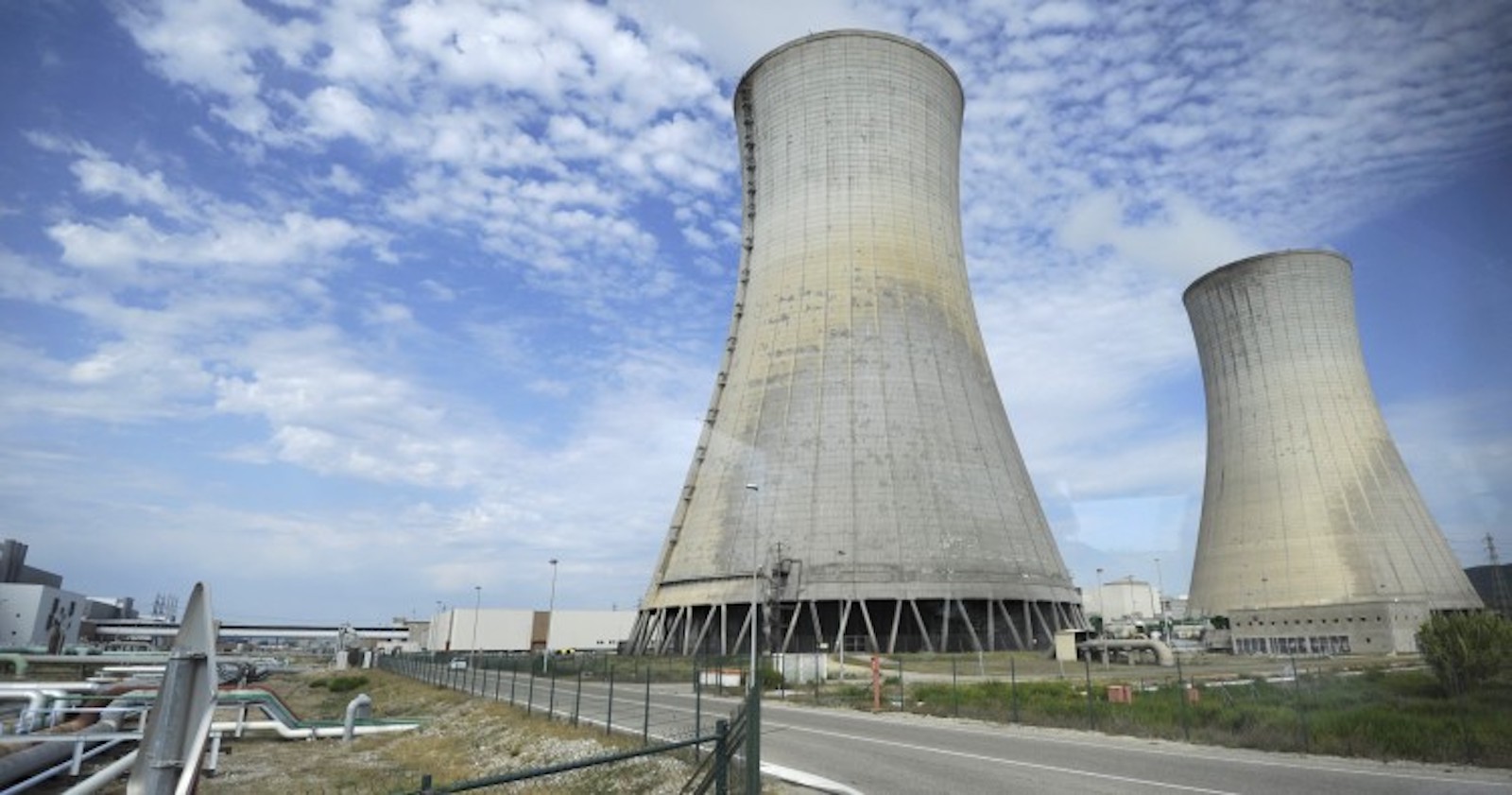
Good morning, ladies and gents. We have a light and speedy issue for you this morning as the news cycle slows to a crawl as we near the weekend. Some significant updates are emerging from the EU, but first…
THE BIG CLIMATE STORY- Egypt’s Suez Canal Economic Zone has inked agreements — worth a combined investment ticket of USD 14.75 bn — for two clean energy projects with China Energy and China’s United Energy.
^^ We have the details on this story and more in the news well, below.
HAPPENING TODAY- The Environment Ministers in the Islamic World is kicking off today in Jeddah and concluding tomorrow. The two-day event will bring together ministers from 52 countries, as well as delegates from 30 regional and international environmental organizations, to discuss the green transition and developments in clean technologies within the Islamic world.
THE BIG CLIMATE STORY OUTSIDE THE REGION- Greta is back in detention again: Climate activist Greta Thunberg was among dozens detained by police in London yesterday at a protest obstructing the entrance to the Energy Intelligence Forum, which hosts fossil fuel executives and government ministers. "The world is drowning in fossil fuels. People all over the world are suffering and dying from the consequences of the climate crisis caused by these industries," Thunberg said prior to her arrest. The Swedish activist has been detained by police or forcibly removed from protests in Sweden, Norway and Germany this year.
The news made headlines in the international press: Reuters | BBC | The Guardian | Deutsche Welle
OVER IN COPLAND- EU decides to push for phase-out of “unabated” fossil fuels: After months of debate, the EU has decided it is not ready to push for a full fossil fuel phase-out agreement at COP, opting to negotiate for an “unabated” phase-out pact instead, Reuters reports. While specifying “unabated” leaves room for the continued production of fossil fuel if carbon capture technologies are used, the agreement did note that emissions capturing technologies “exist at limited scale and are to be used to reduce emissions mainly from hard to abate sectors,” and are “not be used to delay climate action,” the newswire writes. Bulgaria's Environment Minister Julian Popov told Reuters the aim was to keep carbon capture open as an option for polluting sectors with limited technologies to cut emissions — such as chemicals and cement manufacturing — but not for the energy sector where the shift to renewables is already underway. Some diplomats told the newswire earlier this month that a weakened stance from the EU could kill off hopes of an ambitious COP28 outcome.
It’s still a big step forward: If the EU’s stance is adopted during COP, it will mark the first time countries agree on a global phase-out target. “We will be at the forefront of the negotiations to show the EU's strongest commitment to the green transition and encourage our partners to follow our lead,” Spain's Climate Minister Teresa Ribera said after the bloc’s approval.
ALSO- The UAE and Brazil will partner to establish the first Ministerial Dialogue on Building Water-Resilient Food Systems, Wam reported earlier this week. The UAE’s Climate Change and Environment Minister Mariam Almheiri said the two countries will partner to deliver a first of its kind ministerial roundtable on developing water-resilient nutritional networks. The joint ministerial dialogue — whose panelists will include Director-General of the UN’s Food and Agriculture Organization Qu Dongyu; President of the International Fund for Agricultural Development Alvaro Lario; Executive Director of the World Food Programme Cindy McCain; and President of Italy Sergio Mattarella — aims to find pathways to bolstering food and water security while slashing emissions from the global agricultural sector, which currently accounts for some 33% of the world’s annual greenhouse gas emissions.
REMEMBER- Climate-induced food and water shocks could cause USD 5 tn in global losses in five years under extreme scenarios. Reports have found that nutritional insecurity could have an economic toll of up to USD 5 tn under a “plausible increase” scenario, and could reach USD 17.6 tn under the most extreme forecast. The lowest severity scenario would see an economic toll of USD 3 tn, the firm said.
WATCH THIS SPACE #1- Sacré non to nuclear energy inclusion for France: The government of Germany has again rejected an EU proposal to include nuclear energy toward renewable its energy generation targets, frustrating efforts by France to rally support for the power source’s usage, Bloomberg reports. The sticking point is Germany’s belief that France will use its advantageous nuclear power capacity to undercut electricity prices across the EU. France — which has an aging nuclear fleet — is reportedly looking to increase the bloc's nuclear energy generation capacity from 100 GW to 150 GW by 2050 via the installation of 30-45 micro and large nuclear reactors, and debate between Europe’s two largest economies is on the extent of bloc funding should be earmarked toward extending the life cycle of atomic plants.
Continued spats: France and Germany have been locking horns on the matter since February, effectively postponing finalization of a text outlining the EU’s diplomatic priorities ahead of COP28. The two countries have to reach an agreement on nuclear’s status two months before the bloc’s elections next June, Bloomberg writes. Spain is reportedly spearheading mediation efforts, and was set to propose a compromise between the EU’s 27 members yesterday aimed at safeguarding France’s already operational plants, while “easing fears that it could undercut power prices in the rest of Europe.”
IN OTHER EU NEWS- The bloc is set to discuss regulations to reduce plastic pellet pollution: The European Commission proposed measures earlier this week to prevent pollution caused by the spillage of plastic pellets — small granules used to manufacture plastic products — into the environment, Reuters reports. Around 176k metric tons of microplastics are unintentionally released into the environment each year, according to the European Chemicals Agency. Proposed measures include prevention initiatives to avoid any spills of plastic pellets, containment of spilled pellets, and cleaning campaigns if spills occur. The commission decided to focus on pellets — the third largest source of microplastics after tires and paint — given the better availability of data on pellet pollution. The EU's 27 member states and the European Parliament will negotiate the draft measures before they are approved.
The goal: The EU aims to reduce pellets released in the environment every year by 74%, EU environment commissioner Virginijus Sinkevicius told Reuters. The high amount of discarded pellets is the result of mishandling throughout the entire supply chain. Pellet waste management is part of a bigger plan to decrease microplastic pollution by 30% by the end of the decade.
WATCH THIS SPACE #2- Global grid infrastructure upscaling is needed, says IEA: Countries need to commit USD 600 bn in annual investments by 2030 toward doubling or upscaling the world’s current electricity grid capacity to pave the road to net zero, International Energy Agency (IEA) Executive Director Fatih Fatih Birol told The Guardian. To accommodate the influx of clean energy from planned global projects, the world needs to establish or refurbish a total of 80 mn km of electricity grids, Birol said. Renewables projects expected to yield 3 TW are currently on hold due to insufficient transmission and storage grid infrastructure — 5x the amount of solar and wind power added globally last year, the news outlet writes. Inadequate government incentives geared toward improving electricity grids would cause a hike in gas reliance, threatening to push the Paris-agreed 1.5 C warming threshold “out of reach,” Birol warned, adding that emerging markets — aside from China — are particularly seeing a decline in grid investment.
THE DANGER ZONE- Climate tech funding experiences a slump: Climate tech funding dropped 40% y-o-y in 3Q 2023 due to a global investment downturn, but the sector still remains attractive on the whole, according to a new report by PricewaterhouseCoopers (PwC). The amount of capital earmarked by global venture capital and private equity firms for climate technology startups totaled USD 65 bn during the 12 months ending on 30 September, but the decline in investments is “significantly smaller” than the VC and PE average fall of 50% across other sectors.
First-time investors are jumping on the bandwagon: PwC analyzed over 32k transactions worth some USD 490 bn directed toward 8k climate startups, the report notes, revealing a steady increase in the number of first-time climate tech startup investors in 2023. It said that while the industries that need to attract funding the most — including agritech businesses and built environment startups — saw a decrease in their funding levels, venture capital and private equity firms on a whole showed interest in financing emission cutting tech startups including carbon capture, solar energy developers, and clean hydrogen and biofuel production businesses. Green hydrogen investments saw a 64% hike y-o-y, while carbon capture and storage is up 39%, and solar power’s share rose 24%, according to the report.
|
***
YOU’RE READING ENTERPRISE CLIMATE, the essential MENA publication for senior execs who care about the world’s most important industry. We’re out Monday through Thursday by 5am Cairo / 5am Riyadh / 6am UAE.
EXPLORE MORE OF ENTERPRISE ON THE WEB — tap or click here to read EnterpriseAM, EnterprisePM, and The Weekend Edition on our powerful new website packed with reader-friendly features.
Were you forwarded this email? Get your own subscription without charge here or reach out to us on climate@enterprisemea.com with comments, suggestions and story tips.
***
CIRCLE YOUR CALENDAR-
Saudi Arabia will host the Future Investment Initiative from Tuesday, 24 October to Thursday, 26 October in Riyadh. The three-day event will bring together state leaders, policymakers, executives, academics, NGOs, entrepreneurs, and scientists to host panels on how to scale green technologies, mining, AI’s role in the energy revolution, and how geoeconomics will impact critical minerals, the program (pdf) outlines.
Cairo Water Week is taking place from Sunday, 29 October to Thursday, 2 November. This year’s event will focus on global green developments in the water sector with sessions discussing the development of scientific solutions, practical tools, policies, and concrete measures to overcome today’s water challenges. The five-day event is organized by Egypt’s Ministry of Water Resources and Irrigation, in partnership with the EU and FAO.
The UAE will host the Forbes Middle East Sustainability Leaders Summit from Wednesday, 1 November to Saturday, 3 November in Abu Dhabi. The summit will gather international leaders in sustainability, technology, finance, and policy to drive green strategies globally. The agenda includes sessions on climate-smart cities, green mobility, sustainable finance, and sustainable tourism. The summit is expected to set the tone for international and regional dialogue and decision-making, including COP28 which will kick off in late November.
Check out our full calendar on the web for a comprehensive listing of upcoming news events, national holidays and news triggers.
GREEN HYDROGEN
Egypt inks two agreements for green hydrogen and renewables-powered potassium chloride production in the SCZone
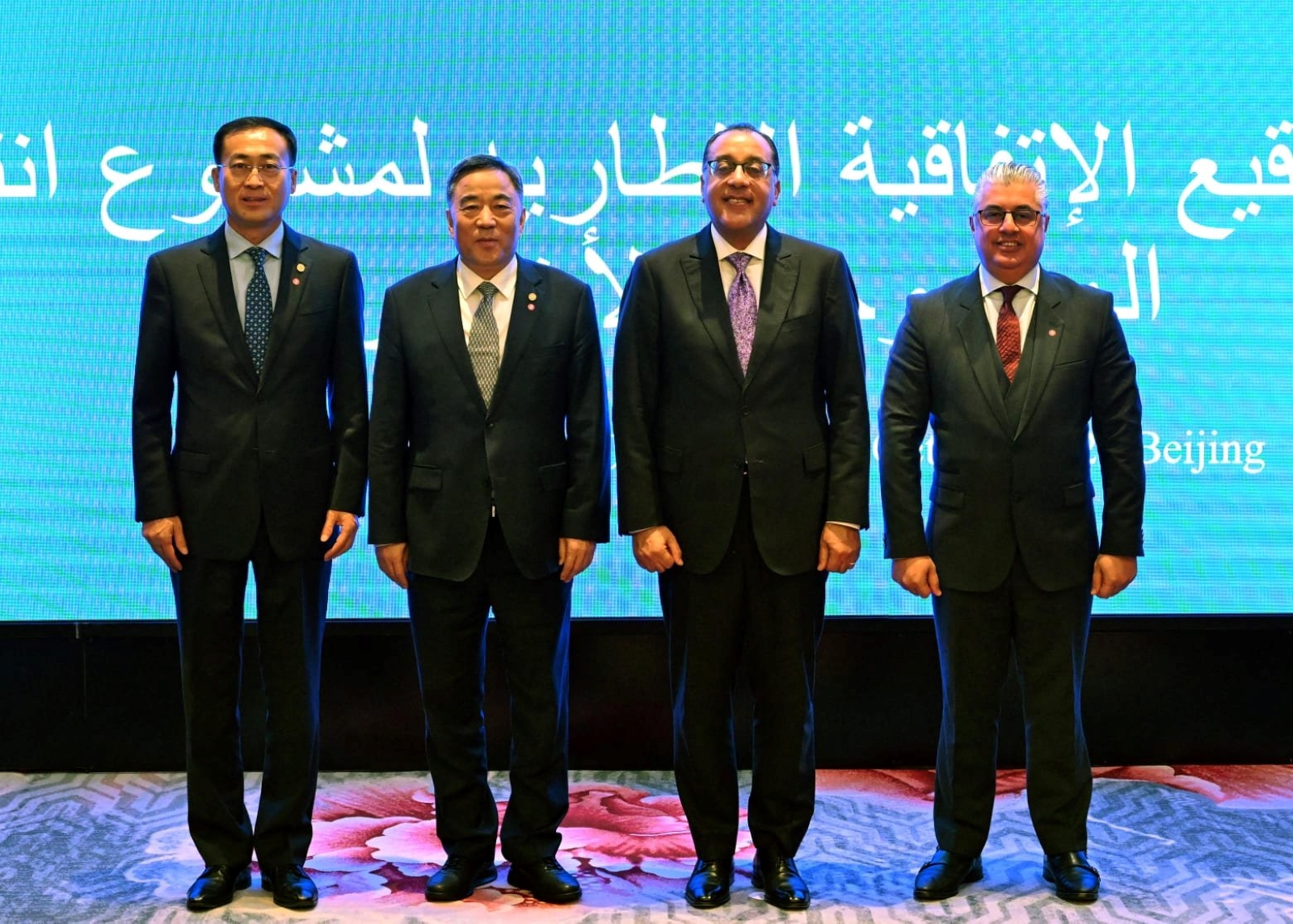
Egypt + China ink two clean energy agreements in SCZone worth USD 15 bn: Egypt’s Suez Canal Economic Zone (SCZone) has inked agreements — worth a combined investment ticket of USD 14.75 bn — for two clean energy projects with China Energy and China’s United Energy, according to a statement. China Energy signed a framework agreement for a planned green hydrogen plant in the SCZone and United Energy is planning a renewables-powered potassium chloride production facility.
United Energy’s facility: Hong Kong-headquartered power company United Energy will establish a potassium chloride production facility — at an estimated USD 8 bn price tag — set to be powered by 6.1 GW of renewable energy, the statement notes. The project would be developed over three phases, with the initial phase setting up a solar plant to generate 150 MW of clean energy to produce 100k tons of chloride potassium. The project will eventually have a production capacity of 4.1 mn tons when fully operational, the statement adds, with 20% of the production earmarked for domestic demand.
China Energy’s green hydrogen plant: Chinese state-owned power firm China Energy Engineering Corporation signed a framework agreement for its USD 6.75 bn green hydrogen plant which will span 500k square meters and generate 210k ton of green hydrogen annually. The green hydrogen will serve as feedstock to generate 1.2 mn tons of green ammonia per annum, the statement notes.
We knew this was coming: China Energy said it intended to sign the framework agreement within two months back in May to develop the green hydrogen plant. The price tag of the project has increased some USD 1.6 bn from the previously announced USD 5.1 bn investment earmarked for the project back in March.
China Energy is also looking elsewhere in the region: The company inked a non-binding agreement with Morocco’s Gaia Energy and Saudi Arabia’s Ajlan & Bros to jointly build a green hydrogen production facility in Morocco which would be powered by a 2 GW solar energy farm and a 4 GW wind power plant to produce 1.4 mn tons and 320k tons of green hydrogen annually.
REMEMBER- Egypt has high hopes for hydrogen: The Egyptian government — which says it will operate its first green hydrogen plant in 2026 — aims to produce up to 1.5 mn tons of green hydrogen per year by 2030 through 19 GW of energy generated from solar and wind projects. The country aims to raise production to 5.8 mn tons by 2040 from 72 GW of renewable energy. This would allow for exporting 3.8 mn tons of green hydrogen, or 5% of the global market.
IN OTHER EGYPT NEWS- SCZone head Walid Gamal El Din met with Chinese EV maker Nio representatives to explore avenues for knowledge transfer and collaboration, according to a separate statement. Abu Dhabi-backed investment firm CYVN Holdings invested USD 738.5 mn in Nio last June to acquire a 7% stake in the company.
WASTE-TO-ENERGY
MENA is jumping on the food waste to energy train, but there’s still much potential to be capitalized on
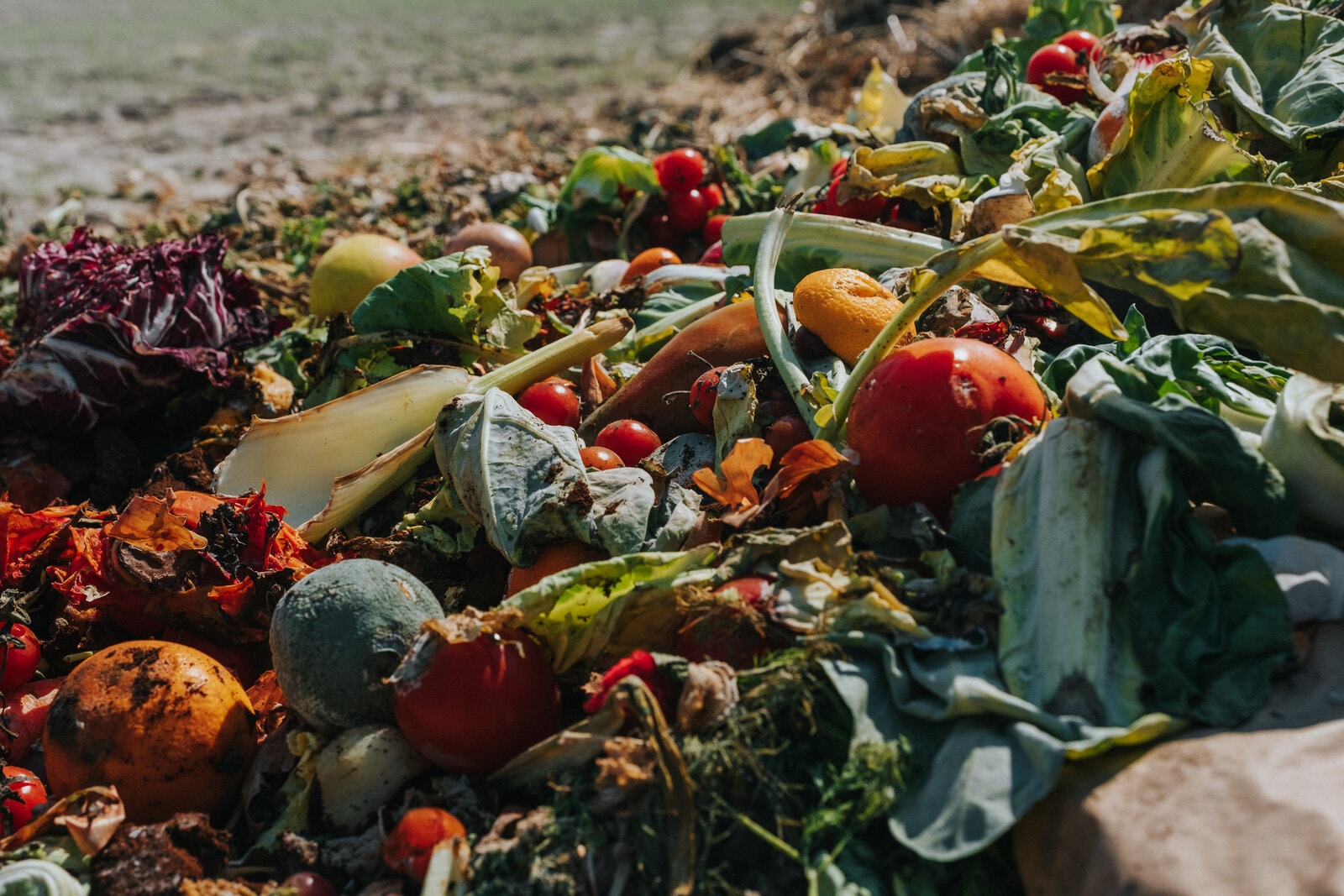
How food waste could be a green energy jackpot: Bns of tons food waste is disposed into landfills globally, releasing methane and creating one of the biggest sources of greenhouse gas emissions (GHG) emissions from the waste sector, The New York Times writes. But what is now a polluting force making our climate change fight harder can be flipped to work in our favor. “Collecting food waste from landfills and turning it into renewable natural gas using anaerobic digestion could be a win-win option for both food waste disposal and renewable energy production,” a study published in Journal of Cleaner Production this year concluded.
Where are we now: Some 1.3 bn tons of food waste is thrown into landfills around the world, aggravating the global climate change crisis, data by FAO showed. The waste is estimated to release a carbon footprint of 3.3 bn tons of CO2 into the atmosphere annually, the data shows. The bill for food waste with the elimination of fish and seafood is expensive, with losses annually estimated at USD 750 bn.
Out of the woods: The growing food waste crisis helped set South Korea as a global example in food waste solutions, with the country banning food scraps from landfills since 2005, NYT writes. The South Korean model — which sees the majority of its food waste turning into animal feed, fertilizers and fuel for homes — is currently being considered by governments globally. New York City — which produces 8 mn pounds of daily residential food waste — has been examining Seoul’s system with a plan underway to have all residents separate their food waste from other trash by next fall.
WTE is picking momentum in MENA: The adoption of waste to energy facilities is picking up pace in the region, with several countries opting for the energy recovery solution under its sustainability efforts. The first phase of the AED 4 bn (USD 1.09) 220 MW Dubai Waste Management Centre (DWMC) in Dubai’s Warsan was inaugurated last July. The 400k sqm plant will process and convert 2 mn tons of waste annually, providing clean electricity to power some 135k residential units. The facility, which is expected to be operational by 1Q 2024, is reportedly the world’s “largest and most efficient” WtE plant, officials said.
The waste sector can bring in big money for some: Oman’s waste recycling sector has an economic potential worth RO 400 mn (some USD 1 bn), an assessment by Oman’s state-owned solid waste management firm Be’ah found. The country generates some 2.4 mn tons of recyclable waste per year. North Africa as a whole — excluding the GCC — has an overall economic benefit ranging between USD 12 and 200 mn, according to a study published in the Journal of Environmental Management.
Oman is making strides in the WtE sector: Oman is already leading the way in WtE projects, with the most successful example being its Sharjah plant launched in 2017, which increased the sultanate's landfill waste diversion from 76% to over 90% — the highest in the region, according to their website. The facility has a capacity of processing 300k tons of waste annually while generating 30 MW of clean energy.
And elsewhere: Oman finalized the technical and economic feasibility studies to establish an ambitious WtE plant with Be’ah back in April with an estimated daily capacity of 4.5k tons of municipal waste. It is set to slash the carbon footprint of landfills by 50 mn tons in 35 years, equivalent to 30% of the total emissions of landfill operations in the sultanate.
Fish waste, anyone? Oman’s first biofuels producer Wakud is setting up a fish-waste recycling facility and a vegetable and fruit waste-to-biogas plant, with work expected to begin by 2H 2024. The company operates WtE plants that use waste products including recycled cooking oil — collected in partnership with Tadweer — to produce biofuels for offtakers including Oman Aluminium Rolling Company.
The UAE is hopping on the wagon: Two international consortiums — one led by Japan’s Marubeni and the other by France’s water utility and waste recycling company Suez — submitted proposals to the Emirates Water and Electricity Company and the Abu Dhabi Waste Management Company (Tadweer) last May for the development of a 900k ton capacity greenfield Waste-to-Energy (WtE) IPP facility in Abu Dhabi. The facility will use advanced moving grate incinerators to convert municipal solid waste into electricity with a target commercial operational launch in 4Q 2026.
And Egypt too: Egypt signed a USD 120 mn agreement in April with a consortium led by Renergy Egypt to design, build, own, and operate its new WtE factory in Abu Rawash city. US-based carbon recycling company LanzaTech signed an MoU with Tadweer last February to explore the possibility of establishing a waste to sustainable aviation fuels conversion plant.
The sector still needs to overcome some (smelly) challenges to fully lift-off: Setting sound regulations and technical standards, creating a suitable business model that can attract investors, localizing the supply chain, launching a public information program to mitigate fears of WtE plant pollution and odors, and labor training are all ways to overcome the stagnating phase of the WtE sector, according to a paper (pdf) published in Waste Management & Research.
ALSO ON OUR RADAR

ELECTRIC MOBILITY-
ADA is joining Abu Dhabi’s SAVI cluster: The Abu Dhabi Investment Office (ADIO) has signed an agreement with Abu Dhabi Aviation (ADA) to support Abu Dhabi’s Smart and Autonomous Vehicle Industry (SAVI) cluster in Masdar City, according to a statement. The agreement will see ADA build an electric vertical take-off and landing aircraft (eVTOL) maintenance, repair, and operations (MRO) facility and partner with tech companies operating in SAVI to advance value chain development, further promoting Abu Dhabi's MRO business portfolio and eVTOL services.
What they do: ADA is the largest commercial helicopter operator in the region and provides aviation offshore oil support, VVIP passenger transport services, and crop spraying services, among other services.
And another one: Neta Auto, Chinese automaker Hozon’s EV brand, will establish a research and development facility in SAVI that will act as a regional hub for sales, imports, and exports as well as for aftermarket components, Wam reports. Neta plans to test its new tech in the testing zone of Abu Dhabi's Yas Island.
REMEMBER- The UAE’s new SAVI cluster in Masdar City is expected to bring in AED 90 bn (c. USD 24.5 bn) to AED 120 bn to the Emirati economy. The formation of the cluster will help boost Abu Dhabi’s “position as a global hub for the development of smart and autonomous vehicles.”
ARTIFICIAL INTELLIGENCE-
Presight signs MoUs to implement AI-enabled monitoring systems: Regional AI giant Presight has signed MoUs with Japan's NEC and DeepTech Engineering to implement their monitoring and detection tech into Presight's Emergency Response Management Platform, Wam reports.
The details: NEC will bring its flood monitoring and alarm system to monitor bodies of water in real-time to predict flood risks and Deeptech will provide a seismic AI solution for early earthquake detection. Presight will use the new capabilities to help clients like the National Emergency Crisis and Disaster Management Authority (NCEMA) with additional preparedness against floods and earthquakes.
AROUND THE WORLD
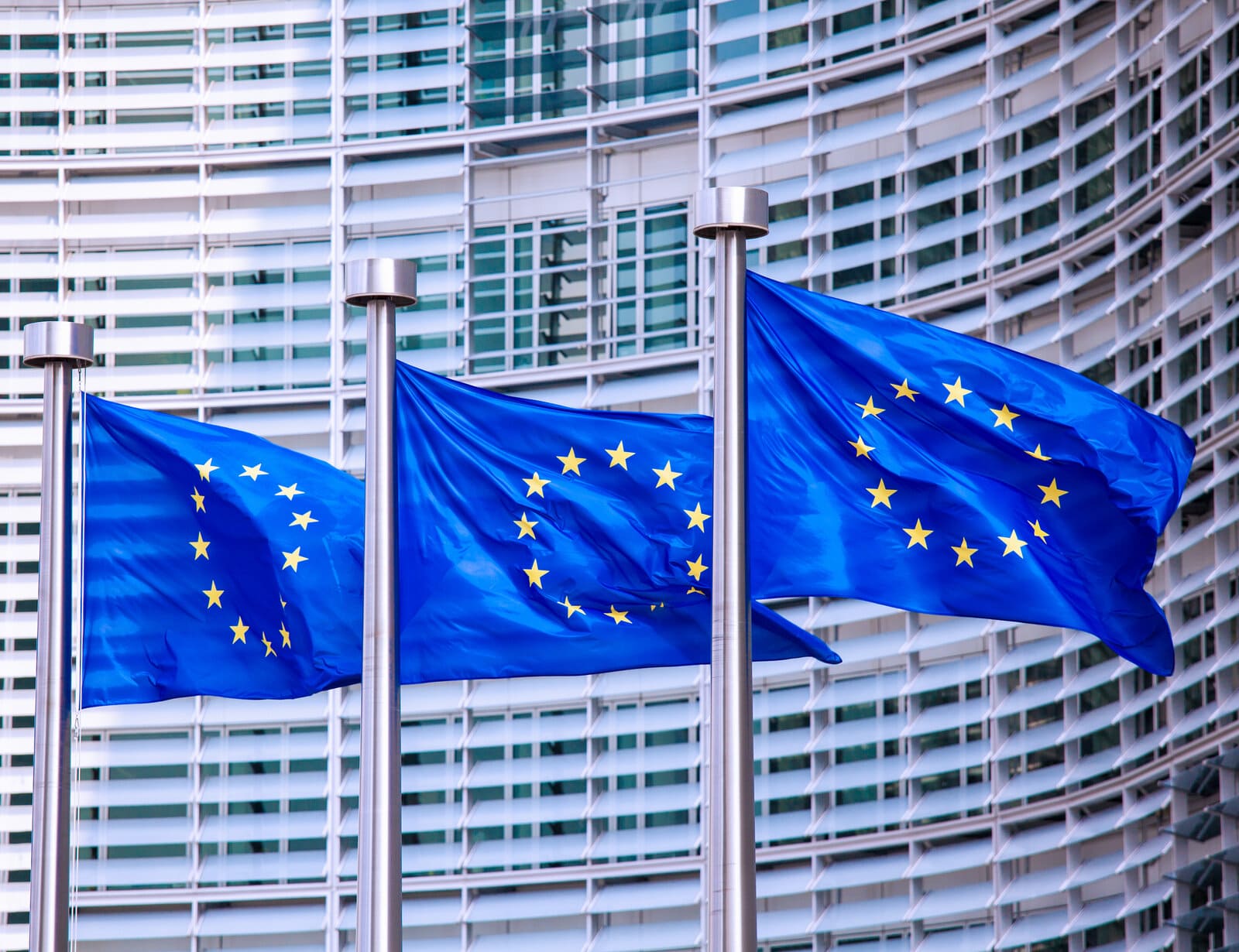
The EU gets tough on trucking emissions: The EU is backing tougher emission restrictions for trucks seconding regulation proposed in February to push down emissions from heavy cars by 45% from 2019 levels by 2030, Reuters reports. The targets also propose to push down emissions by 65% by 2035 and 90% by 2040. The law — which EU climate ministers have agreed to support — will have to be negotiated in the EU Parliament before final approval. While the EU’s move signals a step toward meeting the bloc’s 2050 carbon neutrality target, EU countries delayed approval of a plan to electrify all of the bloc’s new city buses by 2030 by five years after France and Estonia said the 2030 deadline was “unrealistic.”
REMEMBER- The EU wants to ban the sale of fossil fuel-powered cars entirely: The EU is lobbying plans to slash car emissions by 55% compared to 2021 levels by 2030 before ultimately banning the sale of petrol and diesel engines by 2035, but final approval for the target has been delayed several times. Back in March, the bloc began talks with Europe’s largest automaking country Germany on legislation allowing the sale and manufacture of combustion engine vehicles beyond the bloc’s previously agreed termination date provided they run on e-fuels, after the country postponed an EU vote to phase them out in February. Germany — which generates some EUR 411 bn per annum from auto sales — is lobbying for a flexible approach that would not see an outright prohibition of fuel-powered cars.
CALENDAR
OCTOBER 2023
16-18 October (Monday-Wednesday): Climate Week, Rome, Italy.
16-20 October (Monday-Friday): UNCTAD World Investment Forum, Abu Dhabi, UAE.
18-19 October (Wednesday-Thursday): 9th Conference of Environment Ministers in the Islamic World, Jeddah, Saudi Arabia.
18-20 October (Wednesday-Friday): Morocco and Belgium business meeting on green hydrogen, Tangiers, Morocco.
17-18 October (Tuesday- Wednesday): Critical Minerals Africa Summit, Cape Town, South Africa.
17-19 October (Tuesday-Thursday): Energy Intelligence Forum, London, UK.
17-20 October (Tuesday-Friday): Fourth meeting of the COP27 Transitional Committee, Aswan, Egypt.
24-26 October (Thursday-Saturday): Future Investment Initiative, Riyadh, KSA.
25-26 October (Friday-Saturday): Offshore & Floating Wind Europe 2023, London, United Kingdom.
29 October-2 November (Sunday-Thursday): Cairo Water Week, Cairo, Egypt
29 -31 October (Sunday-Tuesday): Egypt Energy Conference, Egypt International Exhibition Centre, Cairo, Egypt.
30 October – 1 November (Monday-Wednesday) ISWA 2023 World Congress: Global action towards a net-zero future, Muscat, Oman.
31 October-2 November (Tuesday-Thursday): Financial Times’ Energy Transition Summit, London, UK.
31 October-2 November (Tuesday-Thursday): World Hydropower Congress, Bali, Indonesia.
NOVEMBER 2023
1-3 November (Wednesday-Friday): Forbes Middle East Sustainability Leaders Summit 2023, Abu Dhabi, UAE.
7-8 November (Tuesday-Wednesday): ADIA Lab Symposium on Climate Change and Health Sciences, Abu Dhabi, UAE.
7-8 November (Tuesday-Wednesday): The 2023 US Algeria Energy Forum, Washington DC, USA.
9-10 November (Thursday-Friday): International Renewable Energy Agency Investment Forum, Uruguay.
9-15 November (Thursday-Wednesday): Intra-African Trade Fair 2023, Cairo, Egypt.
11-13 November (Saturday-Monday): GCC-Türkiye Economic Forum, Istanbul, Turkey.
15-17 November (Wednesday-Friday): WETEX and Dubai Solar Show, Dubai, UAE.
15-18 November (Wednesday-Saturday): DEWA’s First MENA Solar Conference, Dubai, UAE.
20-24 November (Monday-Friday) International Civil Aviation Organisation’s Aviation and Alternative Fuels conference, Dubai, UAE.
27-30 November (Monday-Thursday) Abu Dhabi Finance Week (ADFW), Abu Dhabi, UAE.
28-29 November (Tuesday-Wednesday): World Green Economy Summit (WGES), Dubai, UAE.
30 November – 12 December (Thursday-Tuesday): Conference of the Parties (COP 28), Dubai, UAE.
DECEMBER 2023
4 December (Monday): Saudi Green Initiative Forum, Dubai, UAE.
4 December (Monday): Abu Dhabi Sustainability Week (ADSW) summit, Dubai, UAE.
4-7 December (Monday-Thursday): International Conference on Global Warming, Ras Al Khaimah, UAE.
8 December (Friday): Youth for Sustainability Forum (Y4S), Dubai, UAE.
12-14 December (Tuesday-Thursday): Green Hydrogen Summit Oman, Oman Convention and Exhibition Center, Muscat, Oman.
18-20 December (Monday-Wednesday): Saudi Arabia Smart Grid Conference, Hilton Riyadh Hotel & Residences, Riyadh, Saudi Arabia.
JANUARY 2024
9-11 January (Tuesday-Thursday): Future Minerals Forum, Riyadh, Saudi Arabia.
FEBRUARY 2024
26-28 February (Monday-Wednesday): Management and Sustainability of Water Resources, Dubai, UAE.
MARCH 2024
4-6 March (Monday-Wednesday): International Conference on Sand and Dust Storms in the Arabian Peninsula, Riyadh, Saudi Arabia.
APRIL 2024
16-18 April (Tuesday-Thursday): World Future Energy Summit, Abu Dhabi, UAE.
23-25 April (Tuesday-Thursday): Connecting Green Hydrogen MENA, Dubai, UAE.
MAY 2024
19-21 May (Sunday-Tuesday): Saudi Energy Convention, Riyadh, KSA.
JUNE 2024
5 June (Wednesday): World Environment Day, Saudi Arabia.
OCTOBER 2024
10-12 October (Tuesday-Thursday): Autonomous E-Mobility Forum, Doha, Qatar.
DECEMBER 2024
2-13 December (Monday-Friday): Conference of the Parties (COP16) to the United Nation Convention to Combat Desertification, Riyadh, KSA.
EVENTS WITH NO SET DATE
2023
Mid-2023: Oman set to sign contracts for green hydrogen projects.
Mid-2023: Sale of Sembcorp Energy India Limited to consortium of Omani investors to close.
Phase C of the 900-MW of the Mohammed bin Rashid Al Maktoum Solar Park in Dubai to be completed.
Saudi Basic Industries Corporation (Sabic) steam cracker furnace powered by renewable energy to come online.
2024
12-14 February (Monday-Wednesday): Sustainable Aviation Futures MENA Congress, Dubai, UAE.
End-2024: Emirati Masdar’s 500 MW wind farm in Uzbekistan to begin commercial operations.
QatarEnergy’s industrial cities solar power project will start electricity production.
2025
International Union for Conservation of Nature World Conservation Congress, Abu Dhabi, UAE.
UAE to have over 1k EV charging stations installed.
2026
UITP Global Public Transport Summit, Dubai, UAE.
1Q 2026: QatarEnergy’s USD 1 bn blue ammonia plant to be completed.
End-2026: HSBC Bahrain to eliminate single-use PVC plastic cards.
2027
MENA’s district cooling market is expected to reach USD 15 bn.
2030
UAE’s Abu Dhabi Commercial Bank (ADCB) wants to provide AED 35 bn in green financing.
UAE targets 14 GW in clean energy capacity.
Tunisia targets 30% of renewables in its energy mix.
Qatar wants to generate USD 17 bn from its circular economy, creating 9k-19k jobs.
Morocco’s Xlinks solar and wind energy project to generate 10.5 GW of energy.
2035
Qatar to capture up to 11 mn tons of CO2 annually.
2045
Qatar’s Public Works Authority’s (Ashghal) USD 1.5 bn sewage treatment facility to reach 600k cm/d capacity.
2050
Tunisia’s carbon neutrality target.
2060
Nigeria aims to achieve its net-zero emissions target.
Enterprise Climate is available without charge thanks to the generous support of HSBC (tax ID: 204-901-715), the leading corporate and retail lender in Egypt; and Infinity Power (tax ID: 305-170-682), the leading generator and distributor of renewable energy in Africa and the Middle East. Enterprise Climate is delivered Mon-Thurs before 4 am UAE time. Were you forwarded this copy? Sign up for your own delivery at climate.enterprise.press. Contact us on climate@enterprisemea.com.


